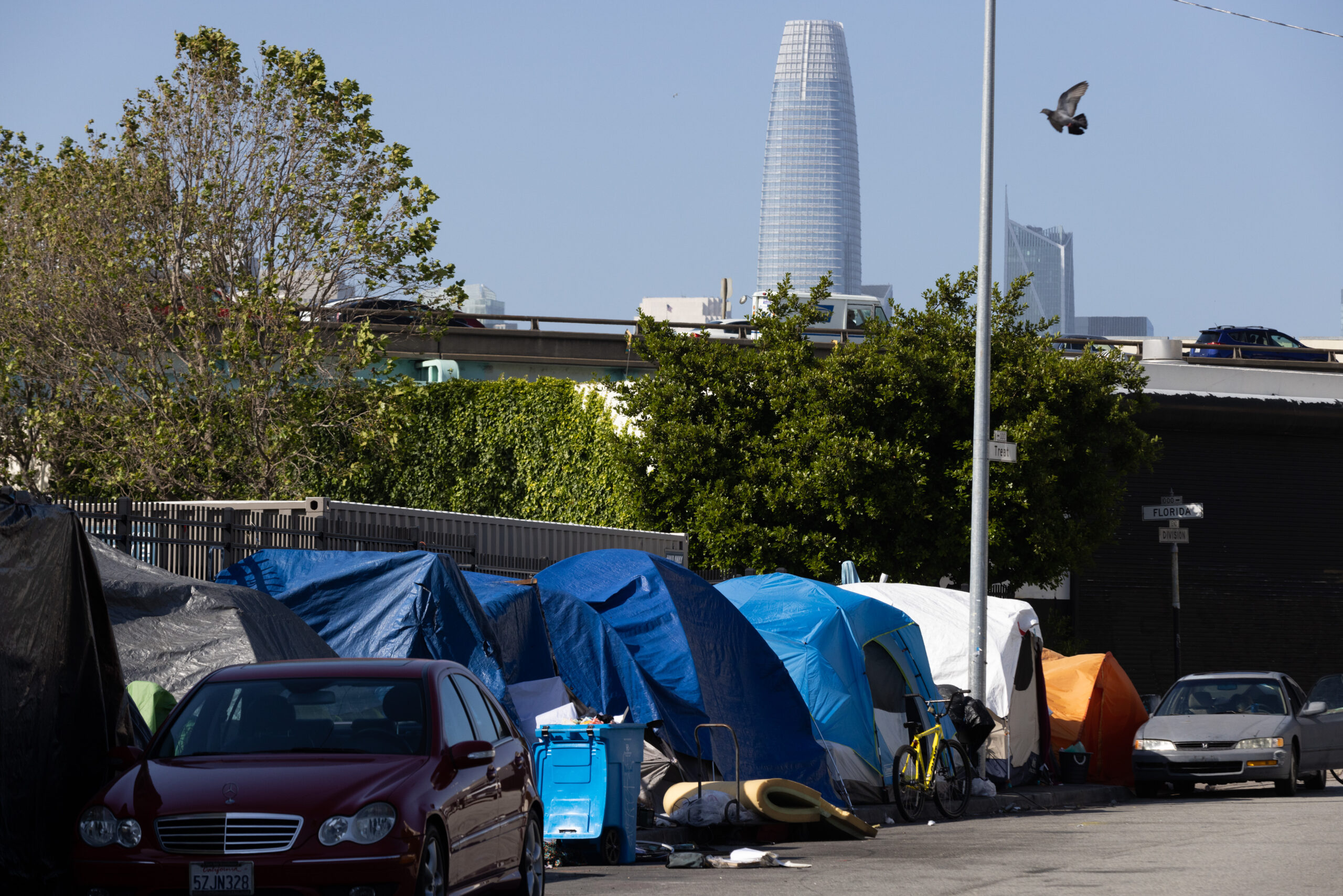The Standard’s George Kelly answers the reader question: How can I help San Francisco’s unhoused population?
Of all the tough questions about homelessness, this one is maybe the most difficult: What can or should I do about it?
Even the most generous and broad-minded among us may not know the best way to respond to this sweeping crisis on a human level.
Add to that the complicated feelings many people have about the folks we encounter living in tents under freeway overpasses or curled up in doorways, most of whom got there due to a complex combination of economic, social and personal factors, including high rents, mental illness and addiction, and bad luck.
Complicating things further is the fact that many San Franciscans link homelessness with rising disorder and certain types of crime. In a voter poll published by The Standard last fall, almost a third of respondents said homelessness was among the top problems facing the city. Most respondents said they felt less safe than they had the year before, and more than 70% cited homelessness as the main reason.
The city is trying to show San Franciscans that it is doing something about the issue. The Department of Homelessness and Supportive Housing released a five-year plan in April to build more than a thousand new shelter beds and 3,250 permanent housing units. However, that plan would need an additional $607 million over the next five years as well as $217 million in additional annual funding thereafter.
San Francisco’s Coalition on Homelessness released a document in January 2021 with suggestions on ways to help homeless neighbors, ranging from lending them phone chargers and letting them use your mailing addresses to researching information about substance use treatment resources. The city provides a list of public bathrooms, and you can contact San Francisco Public Works or your district supervisor to request a “Pit Stop” toilet for your neighborhood.
The group suggests striking up thoughtful conversations like those you might have with other neighbors—about casual subjects like the weather—that can build trust and lead to more meaningful interactions over time. “Ask people what they need. Ask how you can help,” suggests the tip sheet.
You should check in on a homeless person who appears to be in crisis. If the person is asking for help or is unconscious, you can call 911, making it clear that it’s a medical emergency rather than a crime requiring law enforcement.
If you want to ask about support for unhoused people, mobility and access issues encampments, street or sidewalk cleaning or other non-emergency issues, you can call 311.
And if the person is suffering from medical issues but not in need of emergency help, the city Department of Emergency Management has a coordinated street response team.
Longer term, residents and business owners can work to educate themselves about homelessness, organize on behalf of groups responding directly to homeless people’s needs and advocate on their behalf before city leaders and elected officials for sustainable and more permanent solutions.
One pervasive myth is that homeless people in San Francisco and elsewhere around the state come from elsewhere. It’s true that an estimated 172,000 people are homeless in California, which has the largest unhoused population of any state in the U.S. But new findings by researchers at the University of California show that 90% of adults who are experiencing homelessness in the state became homeless while living here, due primarily to the dire lack of affordable housing.
The city’s Department of Homelessness and Supportive Housing offers a list of local nonprofits addressing homelessness and related issues as well as a link to the Mayor’s Fund for the Homeless and a reminder of the power of social media platforms like GoFundMe and other sites that help networks of people accomplish short-term goals.
